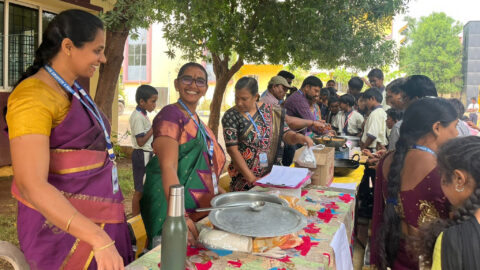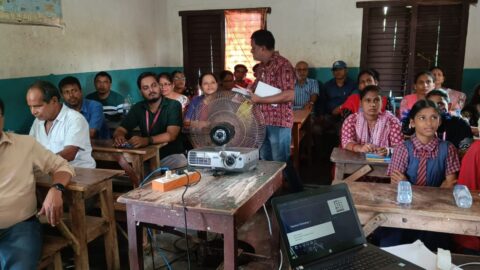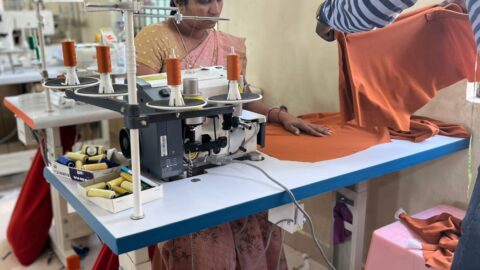The consequences of the pandemic are clearly felt in India. The challenging situation in the labour market and rising poverty increase the risk of human trafficking and violence. Usthi’s anti-trafficking programme is back in full operation.
Problems such as hunger and poverty, which were already a challenge before the Corona crisis, have now been intensified by the pandemic. The economic distress resulting from the pandemic accentuates the already precarious situation of many families. Many people are unemployed, countless children have lost their parents and are left to fend for themselves.
While the economy is recovering, the informal sector is all the more affected. Families from financially weak backgrounds, single mothers and street children rely on employment from informal work to meet their livelihood needs. The desperation that arises from this drives children and young people into the hands of human traffickers or into prostitution.
After hardly any activities were possible in the project due to the second wave, the prevention campaign could now be resumed. As part of Usthi’s programme, staff from the partner organisation visit towns and communities in the area. They educate people about the dangers of human trafficking and raise awareness about violence against women.
The network of the partner organisation in Hyderabad is large: hundreds of people are available as contact persons for those affected. Most of these people have a connection to the topic or are involved themselves and want to prevent others from facing the same fate.
The objective is to identify children and women who are exposed to these threats. Those affected find shelter in Usthi’s children’s and women’s homes. Admission to the professional skills training courses on site is intended to protect the young people from the risks and provide them with a basis for a self-determined future.
Support our prevention campaign! Educating young people helps prevent the risk of human trafficking.



